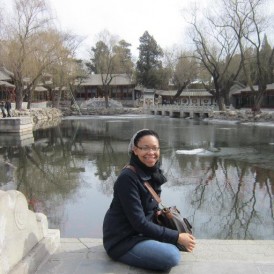COLLEGE FEMINISMS: When Love Equals Silence
By Kristen Reynolds
As I sit here on the eve of my graduation, cataloging what I’ve learned over the last few years as a Black woman coming into (what I hope is) consciousness – I feel a great deal of shame. Shame and, if I am going to be incredibly honest, fear. I often find myself surrounded by friends and family whom I can’t share what I’ve learned with. I worry that I will alienate them while at the same time being ashamed that what I so quickly diagnose in the “out there” spaces, I am unwilling to speak up against in the intimate spaces that create my personal life.
My professors over my course of study have shown me a great deal, most importantly that change begins with the individual. I’m reminded of the backlash that Anita Hill faced when she broke unspoken, yet heeded, rules governing how Black women were supposed to confront Black men who have hurt or wronged them. To attack Black men, apparently, is to attack the self. I am also reminded of the recent controversy surrounding Rick Ross’s music and Talib Kweli’s belief that Black men just need more love from Black women. What I hear him saying is that what they need is silence. But what I’ve heard all my life is that silence does not create change.
Which brings me back to my family and my friends. How can I speak out for change in the “out there” spaces, when I can’t even do it at home? When people I love tell me something akin to “not this feminist stuff again” or employ language that further devalues people on the basis of race, skin color, sexual orientation. Doing this work – work which undermines the very foundation upon which our society is built – is incredibly gratifying, but it is also lonely. The one thing that keeps me afloat (while I’m in classes and writing material that voices my concern about the issues of racism and sexism that underlie much of my peers’ political and personal belief systems) is the family that I return home to at the end of the night, the friends I let loose with on the weekend. But that space is only safe, so long as I keep my mouth shut or only speak of my politics as they relate to those out there spaces.
Fear and shame keep me quiet. How do I combat that when it originates from the space where I’m supposed to be most free to be myself? I see many other young feminists who seem so confident in their worldview, frequently voicing their concerns about violence against women, for example. But fighting that violence necessarily entails combating the violent rhetoric that enters into and emanates from our personal spaces. I speak of fear and shame here because the personal is indeed political, but there appears to be no framework, no guideline (at least at this point in my academic career) that offers some insight into how we direct that politically active “out there” voice, inward. There must be a way to engage how the politic affects us personally and how we, and our loved ones, personally affect (or uphold) the politic.
It is not enough to say that stemming the tide of violence against women requires changing how we think about violence in the world. How do we do that? It is not enough to say that overcoming racism and sexism requires overcoming the binary either/or thinking that must always have an oppressed body of some sort. How do we do that? It must start with the individual, right? It must start with individuals who come into consciousness and bring their most intimate family members and friends into consciousness with them. But, for those of us who have few family members and few friends, by design or by circumstance – how do we do that without introducing the alienation we experience in predominately white, male classrooms into our homes?
I know that this essay is filled with more questions than answers, but everything I’ve read as a baby scholar has given me no indication of how to combat the fear and shame that I speak of. Must my love and silence always be the same?
_________________________________________________________
 Kristen Reynolds is a young scholar who has a love for storytelling. In her spare time, she reads, plays video games and tries to learn more about feminism.
Kristen Reynolds is a young scholar who has a love for storytelling. In her spare time, she reads, plays video games and tries to learn more about feminism.




16 Comments